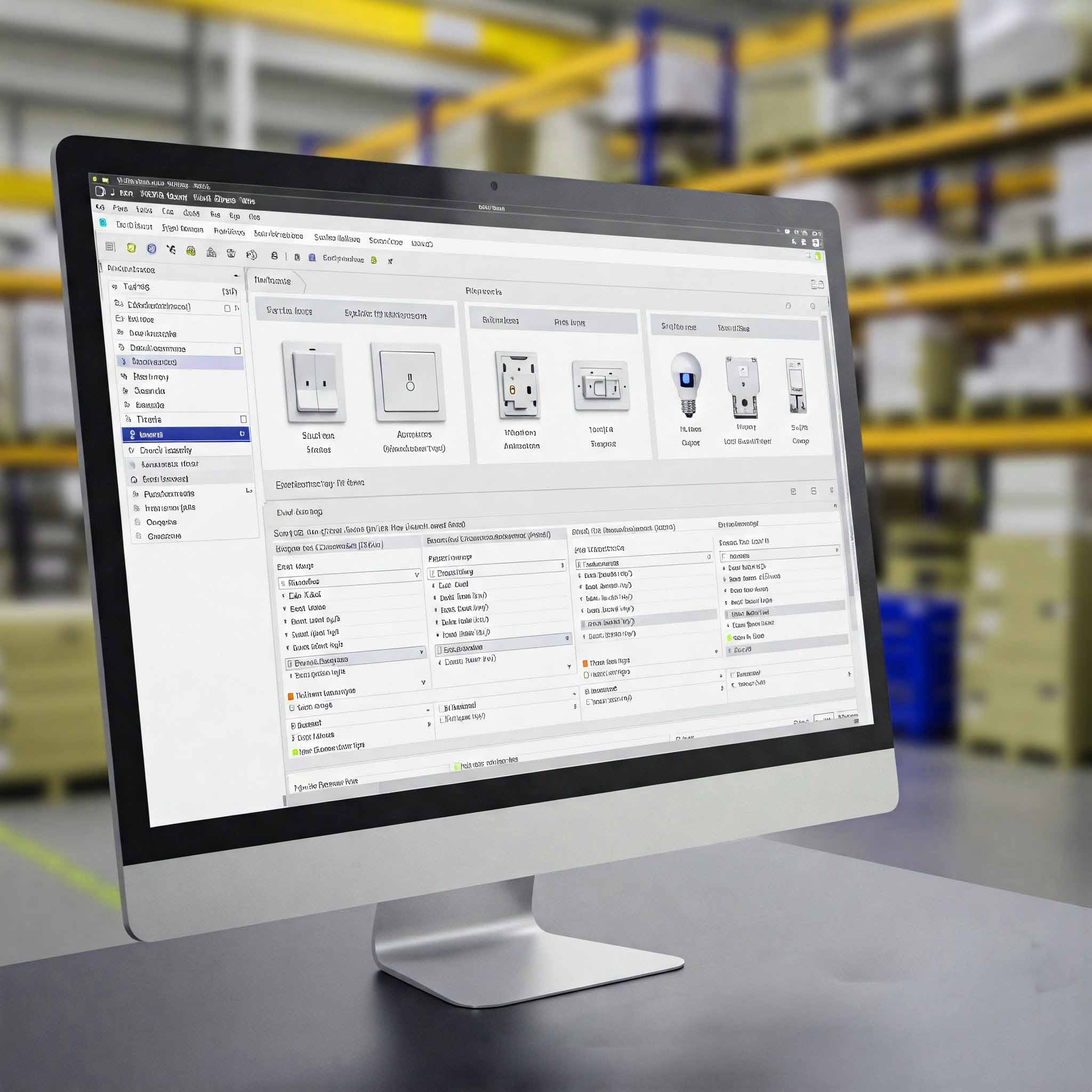Published by EvaluateERP | ERP Consulting for Distributors

- Introduction
- Key ERP Features Electrical Distributors Need
- Top ERP Systems for Electrical Distributors in 2025
- How to Choose the Right ERP
- Final Thoughts
In 2025, electrical distributors face rising competition, supply chain challenges, and increasing customer expectations. To remain competitive and scalable, many are investing in industry-specific ERP systems.
Whether you’re upgrading from a legacy system or evaluating ERP options for the first time, this article highlights the best ERP software tailored for electrical distribution businesses in 2025.
Key ERP Features Electrical Distributors Need
Not all ERP systems are designed for the unique complexities of electrical distribution. Here’s what to look for:
- Advanced Inventory Management (multi-location, kits, substitutions)
- Real-time Order Processing & Automation
- Warehouse Management System (WMS) with barcode support
- Built-in Business Intelligence & Reporting
- CRM Integration for Sales Reps
- Demand Forecasting
- Pricing & Rebate Management
- E-commerce & Customer Portals
- Cloud-Based Access for Remote Teams
Top ERP Systems for Electrical Distributors in 2025
1. NetSuite
Best for: Mid-sized to large distributors looking for full-cloud flexibility.
Strengths:
- Real-time dashboards & financials
- Excellent inventory control
- SuiteCommerce B2B integration
- Strong customization options
Challenges:
- Can become expensive as modules are added
- Requires experienced implementation partners
2. Epicor Prophet 21
Best for: Electrical distributors seeking deep industry functionality
Strengths:
- Purpose-built for distribution
- Extensive warehouse, inventory & pricing controls
- Mobile sales & field service capabilities
- Cloud and on-premise flexibility
Challenges:
- User interface less modern than competitors
- Learning curve during setup
3. Infor CloudSuite Distribution
Best for: Larger electrical distributors or multi-location operations.
Strengths:
- Industry-specific workflows
- Complex pricing, rebate & contract management
- Seamless warehouse and logistics modules
- AI-driven analytics (Birst)
Challenges:
- High total cost of ownership
- Heavier implementation phase
4. Acumatica Distribution Edition
Best for: Growing electrical distributors wanting flexibility and lower upfront costs.
Strengths:
- Cloud-native with unlimited user licensing
- Real-time inventory visibility
- Configurable dashboards and BI
- Integrates easily with third-party tools
Challenges:
- May need customization for niche needs
- Requires strong implementation partner
5. Ximple ERP
Best for: Mid-size to enterprise electrical distributors looking for cloud-native, distribution-specific ERP.
Strengths:
- Designed specifically for electrical distribution
- Strong multi-warehouse & procurement capabilities
- Integrated e-commerce and customer portals
- Modern UI and flexible modules
Challenges:
- Less recognized than legacy ERP brands
6. SAP Business One
Best for: Electrical distributors with global operations or complex reporting needs.
Strengths:
- Trusted, globally recognized ERP
- Good financials and supply chain features
- Extensive add-ons available
- Strong BI tools
How to Choose the Right ERP
Before making a decision, consider the following:
- Your business size & growth plans
- Need for cloud vs on-premise
- Warehouse automation & logistics
- Integration with CRM, eCommerce, EDI
- Budget (including implementation + maintenance)
- Vendor reputation and industry focus
Final Thoughts
Choosing the right ERP in 2025 means finding a system that doesn’t just “work” — but works for your industry. Electrical distributors must handle complex inventory, vendor relationships, special pricing, and B2B customer demands.
Solutions like Epicor Prophet 21, NetSuite, Acumatica, and Ximple ERP are strong contenders. But the best ERP is the one that aligns with your operations, team, and growth strategy.
